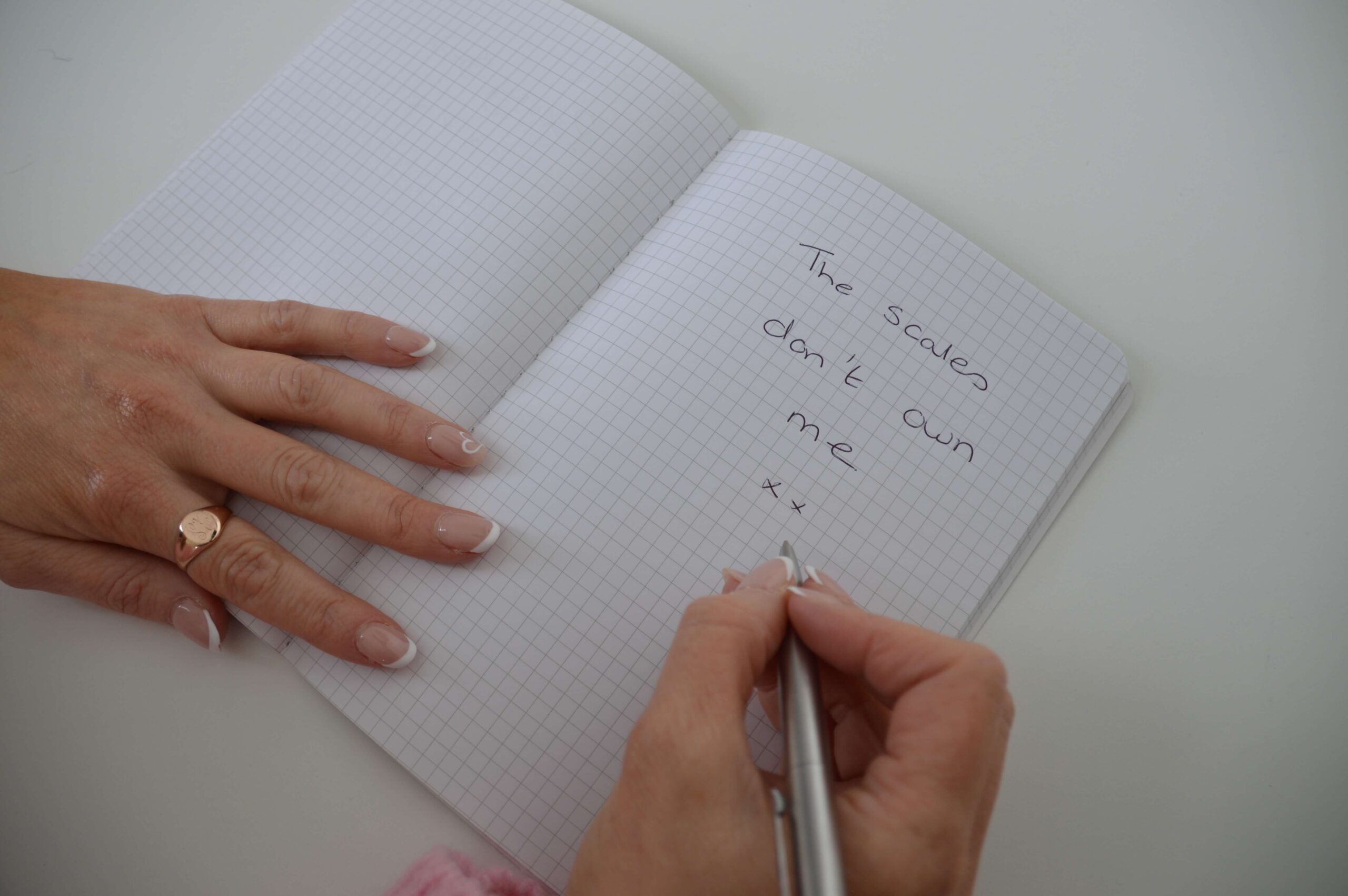Healthy on the Outside, Hurting on the Inside: When Control Becomes a Coping Mechanism
Discover a path to healing where food is no longer a source of fear but a journey towards self-acceptance and freedom.
The Illusion of “Clean Eating"
It starts with a choice that looks healthy from the outside.
Swapping chips for kale. Downloading a calorie-tracking app. Cutting out sugar because “it’s inflammatory.” Saying no to birthday cake because you’re “just trying to be good.”
But beneath that surface? For many high-functioning, anxious, or neurodivergent clients I work with, what looks like self-care is self-protection. “Clean eating” often becomes a rigid rulebook, a way to control something, anything, when everything else feels messy, unsafe, or overwhelming.
Orthorexia is the eating disorder that hides in plain sight.
The Perfectionism Trap
The Illusion of Worthiness
At the root of this behaviour is often a deeper perfectionist driver. Many of us grew up in systems, families, schools, or social groups where love, praise, and attention were conditional on achievement.
➔ Got a certificate? Well done.
➔ Got it wrong? Be better next time.
Over time, the unconscious belief settles in: “If I am perfect, I am safe. If I fail, I am rejected.”
This perfectionism doesn’t just show up at work or school. It shows up on your plate. In the quiet panic you feel when a food isn’t organic, low-fat, or “clean.” In the way a dinner invitation sparks more fear than joy. In the overwhelming food anxiety that tells you: If I eat this, I’ll lose control.
Understanding the Neuroscience of Control
The Impact of Perfectionist Eating on Neurodivergent Minds
Redefining Failure as a Path to Growth
The Neuroscience of Control
From a brain perspective, perfectionism and control-seeking behaviours are rooted in our nervous system.
When life feels uncertain, the amygdala, the brain’s fear centre, fires up. This triggers the fight-flight-freeze response. For many neurodivergent people (including those with ADHD and autism), that internal alarm system is especially sensitive.
Food becomes a predictable variable. You might not be able to control your relationships, your workload, or your emotions, but you can control what goes on your plate. Or so it seems.
But chronic perfectionism and food anxiety don’t calm the nervous system. They maintain it. You’re stuck in high-alert mode, constantly scanning for potential “bad foods,” unknown ingredients, or moments where you might “slip up.”
Why “Failure” Is Actually a Gift in Therapy
The 'F*ck It Bucket': A Tool for Imperfection
One thing I teach in therapy is how to reframe failure.
If you’ve only ever felt accepted when you’re doing well, then “getting it wrong” feels like danger. But what if failure was actually a form of growth? A sign of trying?
I often use this image with clients: toddlers fall over all the time. They don’t feel ashamed or embarrassed. They wobble, fall, and get back up.
But as adults? We fall over, metaphorically or emotionally, and we’re riddled with shame. We believe we’ve failed as a person, not just made a mistake. This belief is the root of the perfectionist eating disorder loop.
In therapy, we slow this down.
We explore how it feels to get something “wrong”, to eat something that wasn’t planned. To challenge a fear of food. To drop the rules and notice what comes up in the body and mind.
And slowly, confidence builds.
The Power of Small Victories
Celebrating Each Step Forward
My Own Journey With Mistakes
My Own Experience With Mistakes
I’m ADHD. I make mistakes. I mishear things. I get overwhelmed. And when I try to get things perfect, I freeze. So I use what I call the “F*ck It Bucket” where I try things imperfectly instead of not at all.
Recently, I pushed myself out of my comfort zone and went to a beachside sauna evening alone. It’s the kind of thing I would usually avoid. I was full of anxiety:
➔ What if I say something awkward?
➔ What if I can’t relax?
➔ What if everyone knows each other?
But I did it. And I’m so glad I did. I met kind people; I felt grounded in my body and even tried the cold plunge. These kinds of nervous system-regulating experiences can be so powerful, especially if you’re navigating anxiety or perfectionism.
Here’s an example of the place I went to:
👉 Sea Scrub Sauna (opens in new tab)
It reminded me that growth isn’t always about food. Sometimes it’s saying yes to life. Yes to new spaces. Yes to being imperfect and doing it anyway.

Embracing Flexibility in Recovery
Letting go of rigid food rules is a crucial step in recovery. Therapy helps you embrace flexibility, allowing you to navigate food choices without fear or guilt. This newfound freedom is not just about food; it’s about reclaiming your life and living it on your terms, free from the constraints of perfectionism.
You Are Whole as You Are
Small Wins Matter
One of my clients, someone deeply entrenched in perfectionism, recently texted to say she had managed to eat pasta, pesto, and cottage cheese. Three foods she previously feared.
We sent each other pictures of our little wins that day. It wasn’t about the pasta. It was about the courage to say: “This doesn’t control me anymore.”
That’s what recovery looks like. Not a huge overnight change. But micro moments of bravery, again and again.
How Therapy Helps You Let Go of the Rules
When you work with me, we unpack:
-
Where the perfectionism came from ➔ childhood, school, culture
-
What food anxiety represents ➔ safety, identity, self-worth
-
How failure might be the doorway to freedom ➔ and joy
You don’t need to get eating “right.”
You need to feel safe enough to explore it honestly.
We use tools like body-based awareness, trauma-informed grounding, and values-based work to reconnect with who you are, not who your eating disorder says you should be.

Embracing Imperfection
Final Thoughts: You Are Not Your Rules
You weren’t born with a food rulebook in your hands. You didn’t enter the world believing broccoli was good and white bread was evil. These beliefs were given to you.
You get to question them now.
You get to notice the fear, the perfectionism, and the food anxiety, and still eat the damn pasta.
You get to make mistakes. You get to fall and wobble and rise again.
Not because you’ve “failed” recovery, but because you are in it.
Join Our Supportive Community
If you found this blog helpful, I share honest, trauma-informed insights every single week on recovery, self-worth, and what it means to feel good in your skin.
➔ Sign up here to get weekly support straight to your inbox
No spam. Just words that lift you up.
Meet Becky Stone: Your Compassionate Guide
I’m Becky Stone, a qualified eating disorder therapist based in the UK. I work with both teens and adults, offering a calm and non-judgmental space to explore what recovery truly means, on your terms. With a background in supporting people through anorexia, bulimia, binge eating, and body image struggles, I know how complex and personal this journey can be. I specialise in supporting neurodivergent individuals, including those with ADHD and autism. I believe in flexible, shame-free recovery and rebuilding a safe relationship with food, body, and self.
Schedule Your Consultation Today
Take the first step towards your recovery journey by booking an appointment with us. Our supportive environment is designed to help you explore your path to healing and growth. Reach out now to begin your transformation.




